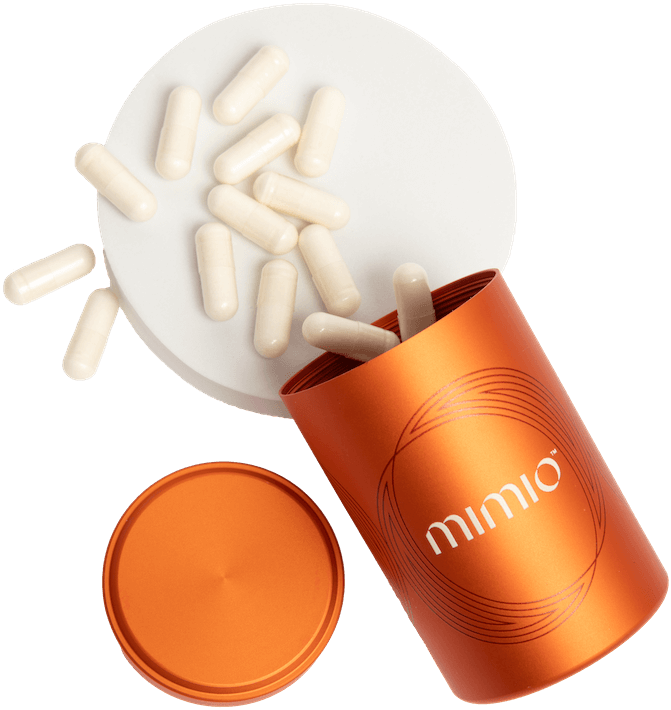Exploring the Anti-Inflammatory and Antioxidant Effects of Dietary Supplements
When Cellular Defense Meets Modern Stress
Your cells are under constant attack. Between pollution, processed food, stress, poor sleep, and environmental toxins, it’s no wonder that inflammation and oxidative stress have become chronic health buzzwords.
But the body isn’t defenseless—it’s armed with a powerful internal system of antioxidants. These molecules help neutralize free radicals, reduce inflammation, and keep your cells functioning optimally.
The challenge? Modern life often overwhelms this system. That’s where antioxidant supplements come in, stepping in to support your body’s natural defenses and tipping the balance back in your favor.
Let’s unpack what antioxidants do, why inflammation is such a big deal, and which supplements can help you stay healthier, longer.
Oxidative Stress & Inflammation: The Cellular Saboteurs
What is Oxidative Stress?
Oxidative stress happens when there’s an imbalance between free radicals (unstable, reactive oxygen species) and your body’s ability to neutralize them with antioxidants.
Left unchecked, oxidative stress can damage:
-
DNA
-
Cell membranes
-
Proteins
-
Mitochondria
This damage accelerates aging and is linked to nearly every chronic condition: cardiovascular disease, diabetes, neurodegeneration, cancer, and more.
What About Inflammation?
Inflammation is your immune system’s response to threats—but chronic inflammation is a silent saboteur. It quietly erodes your health and contributes to:
-
Brain fog
-
Fatigue
-
Joint pain
-
Insulin resistance
-
Accelerated aging
Here’s the kicker: oxidative stress drives inflammation—and vice versa. It’s a feedback loop that speeds up aging and disease.
Chart: Oxidative Stress vs. Inflammation
|
Process |
What It Does |
Health Impact When Chronic |
|
Oxidative Stress |
Free radical buildup damages cells |
DNA damage, aging, disease risk |
|
Inflammation |
Immune system stays activated |
Chronic pain, fatigue, disease progression |
|
The Loop |
Each amplifies the other |
Cellular dysfunction, immune imbalance |
How Antioxidant Supplements Help
Antioxidants are molecules that stabilize free radicals before they cause damage. Your body makes some (endogenous antioxidants like glutathione), but you also get many from diet and supplements.
Key benefits of antioxidant supplementation:
-
Protects DNA and cellular membranes
-
Reduces oxidative damage
-
Supports immune balance
-
Enhances mitochondrial function
-
Helps modulate chronic inflammation
And for those seeking longevity, cognitive clarity, and metabolic health, antioxidant support is one of the most powerful low-effort tools available.
The Top Antioxidant Supplements (and What They Do)
Here’s a breakdown of the most effective and research-backed antioxidant supplements:
1. Quercetin
A plant flavonoid found in onions, apples, and green tea.
-
Benefits: Anti-inflammatory, senolytic (targets zombie cells), supports immune response.
-
Synergy: Works well with zinc and vitamin C.
-
Use Case: Immune boosting, longevity, and cellular repair.
2. Fisetin
Found in strawberries and apples, it’s emerging as a senotherapeutic—targeting senescent (aging) cells.
-
Benefits: Reduces oxidative stress, enhances lifespan in animal models, supports autophagy.
-
Use Case: Anti-aging, brain health, inflammation control.
3. Alpha-Lipoic Acid (ALA)
A fat- and water-soluble antioxidant that can regenerate other antioxidants like glutathione and vitamin C.
-
Benefits: Supports mitochondrial energy, stabilizes blood sugar, reduces inflammation.
-
Use Case: Diabetic neuropathy, brain function, longevity.
4. Glutathione
Your body’s master antioxidant.
-
Benefits: Detoxifies cells, supports liver, reduces oxidative damage, essential for immune function.
-
Use Case: Chronic illness, detox protocols, cellular protection.
5. Vitamin C
A classic antioxidant that scavenges reactive oxygen species (ROS) and regenerates other antioxidants.
-
Benefits: Collagen support, immune booster, stress resilience.
-
Use Case: Daily antioxidant defense, wound healing, skin health.
6. Curcumin (from Turmeric)
Known for its potent anti-inflammatory properties.
-
Benefits: Inhibits inflammatory pathways like NF-κB, scavenges free radicals.
-
Use Case: Joint health, inflammatory diseases, cognitive support.
7. Mimio Biomimetic Cell Care
Inspired by the cellular benefits of fasting, Mimio supports antioxidant and anti-inflammatory pathways without requiring dietary restriction.
-
Benefits: Activates autophagy, reduces inflammation, mimics fasting’s metabolic benefits.
-
Use Case: Daily longevity support, metabolic health, biohacking your anti-aging routine.
Chart: Comparing Antioxidant Supplements
|
Supplement |
Primary Action |
Best For |
|
Quercetin |
Flavonoid antioxidant |
Immune, senolytics |
|
Fisetin |
Anti-senescent compound |
Brain, longevity |
|
ALA |
Mitochondrial support |
Metabolism, neuroprotection |
|
Glutathione |
Cellular detox |
Liver, oxidative stress |
|
Vitamin C |
ROS neutralizer |
Immune, collagen |
|
Curcumin |
Anti-inflammatory |
Joints, chronic inflammation |
|
Mimio |
Fasting mimetic, autophagy |
Longevity, metabolic optimization |
Antioxidants and Autophagy: A Dream Team for Longevity
Autophagy is your body’s way of clearing out cellular debris and recycling old parts. It’s activated during fasting and is crucial for:
-
Slowing aging
-
Preventing disease
-
Maintaining healthy metabolism
Many antioxidant supplements—especially fisetin, quercetin, and Mimio—help activate or support autophagy pathways, enhancing your body’s internal clean-up crew.
Combined with intermittent fasting or biomimetic support, antioxidants become more than just protective—they become regenerative.
The Inflammation-Aging Connection (And How to Disrupt It)
Chronic inflammation is at the root of “inflammaging”—a term used to describe age-related decline driven by persistent immune activation.
Unchecked, it leads to:
-
Cellular senescence
-
Immune exhaustion
-
Tissue degradation
-
Reduced lifespan
Antioxidants help interrupt this cascade by:
-
Blocking inflammatory signaling pathways (like NF-κB)
-
Reducing cytokine storms
-
Calming microglial inflammation in the brain
Chart: The Inflammation–Oxidative Stress–Aging Triangle
|
Trigger |
Result |
Long-Term Impact |
|
Oxidative stress |
Cell & DNA damage |
Aging, disease |
|
Chronic inflammation |
Immune system dysregulation |
Autoimmunity, fatigue |
|
Aging |
Slower recovery, higher ROS |
Cellular dysfunction, senescence |
How to Choose the Right Antioxidant Supplement
Everyone’s biology is different. Here’s how to tailor your antioxidant stack:
For General Wellness:
-
Vitamin C
-
Glutathione
-
Mimio
For Brain Health:
-
Fisetin
-
Curcumin
-
Alpha-Lipoic Acid
For Inflammation & Pain:
-
Curcumin
-
Quercetin
-
Omega-3s (EPA/DHA)
For Longevity:
-
Fisetin
-
Mimio
-
Resveratrol (optional add-on)
Pro Tips for Antioxidant Absorption
To get the most from your supplements:
-
Take fat-soluble antioxidants (like curcumin, ALA) with healthy fats
-
Use liposomal or reduced forms of glutathione for better absorption
-
Combine quercetin or fisetin with black pepper extract (piperine) to boost bioavailability
-
Stay hydrated—cellular detox requires water
The Power of Prevention
Antioxidants aren’t just for when you’re sick. They’re about cellular resilience—keeping your systems humming so you stay ahead of disease, not behind it.
-
A supplement like Mimio can act as daily biological insurance, helping your cells perform their best.
-
When paired with a diet rich in colorful fruits and vegetables, sleep, and movement, antioxidants become part of a holistic anti-aging strategy.
Aging Is Inevitable—But Inflammation Doesn’t Have to Be
We can’t stop time—but we can slow down the damage. Antioxidant supplements, especially when combined with anti-inflammatory compounds and biomimetic tools, help your body fight back against the silent forces of aging.
Whether you're supporting detox, enhancing recovery, or boosting cognitive resilience, antioxidants are the bridge between where your health is now—and where it could be.
Start simple. Stay consistent. Let nature’s defense systems do what they were designed to do.



